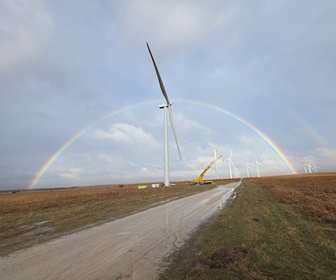The fossil fuel price crisis has accelerated the competitiveness of renewable power. Around 86 per cent (187GW) of all the newly commissioned renewable capacity in 2022 had lower costs than fossil fuel-fired electricity. The report, Renewable Power Generation Costs in 2022, published by the International Renewable Energy Agency (IRENA) shows that the renewable power added in 2022 reduced the fuel bill of the electricity sector worldwide.
New capacity added since 2000 reduced the electricity sector fuel bill in 2022 by at least USD 520 billion. In non-OECD countries, just the saving over the lifetime of new capacity additions in 2022 will reduce costs by up to USD 580 billion.
In addition to these direct cost savings, there would be substantial economic benefits from reducing CO2 emissions and local air pollutants.
IRENA’s new report confirms the critical role that cost-competitive renewables play in addressing today’s energy and climate crises by accelerating the transition in line with the 1.5°C warming limit. Renewables represent vital planks in countries’ efforts to swiftly reduce, and eventually phase out, fossil fuels and limit the macroeconomic damage they cause in pursuit of net-zero emissions.
At a global level, the weighted-average cost of electricity fell for utility-scale solar PV by 3 per cent, for onshore wind by 5 per cent, for concentrating solar power by 2 per cent, for bioenergy by 13 per cent and for geothermal by 22 per cent. Only the costs for offshore wind and hydropower increased by 2 per cent and 18 per cent respectively, due to the reduced share of China in offshore wind deployment in 2022 and cost overruns in a number of large hydropower projects.
Between 2010 and 2022, solar and wind power became cost-competitive with fossil fuels even without financial support. The global weighted average cost of electricity from solar PV fell by 89 per cent to USD 0.049/kWh, almost one-third less than the cheapest fossil fuel globally. For onshore wind the fall was 69 per cent to USD 0.033/kWh in 2022, slightly less than half that of the cheapest fossil fuel-fired option in 2022.
IRENA’s report concludes that expected high fossil fuel prices will cement the structural shift that has seen renewable power generation become the least-cost source of new generation.









